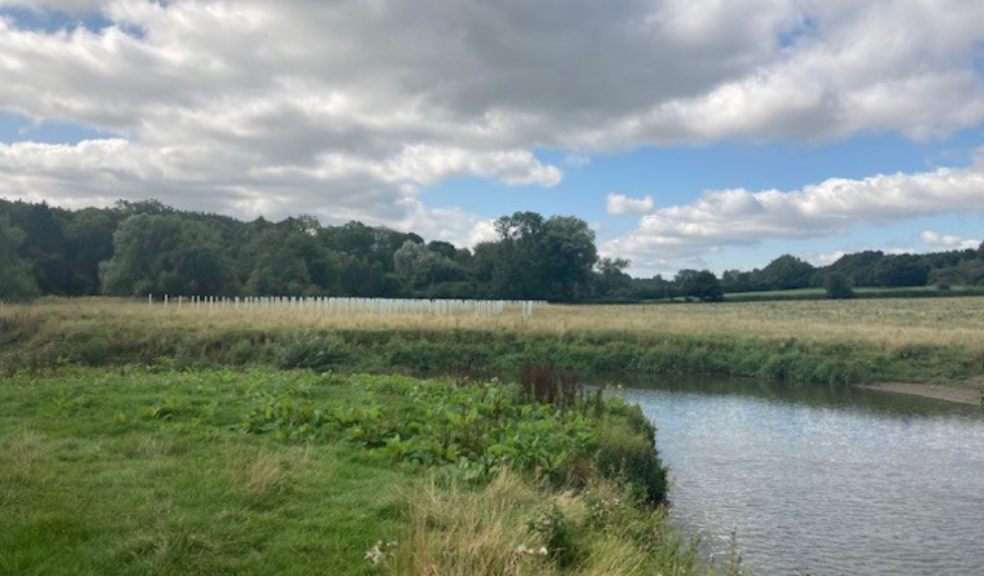
Devon and Cornwall chosen as part of plan to create thousands of hectares of new woodland in England
Over 3,000 hectares of new woodlands are set to be planted along England’s rivers and watercourses with backing from the country’s leading environmental organisations, Forestry Minister Lord Goldsmith announced on Saturday (25 September).
Planting trees on and around riverbanks, or allowing them to grow naturally, can help to improve water quality by blocking the runoff of pollutants into rivers, manage flood risks by slowing the flow of water, boost biodiversity by creating new habitat corridors and make our rivers more climate resilient by providing shade and cooling water temperatures. There are 242,262km of watercourses in England, and it is hoped that by planting trees in this way they will contribute to a natural network of habitats across the country as part of our plans to expand, improve and connect these places across our towns, cities and countryside.
The ‘Woodlands for Water’ project aims to create 3,150 hectares of trees in six river catchment areas from Cornwall to Cumbria by March 2025. To support farmers and landowners to create these woodlands, they will be able to apply for funding through the ‘England Woodland Creation Offer' grant which provides greater financial incentives for landowners and farmers to plant and manage trees, including along rivers and watercourses.
Speaking from a National Trust river tree planting project, Forestry Minister Lord Goldsmith said: “This is a hugely exciting and untapped area for woodland creation. The benefits of planting trees by rivers are vast - from helping biodiversity recover by creating more natural riverbanks; to slowing the flow of surface water to reduce the risk of flooding; and improving water quality by buffering rivers from harmful agricultural pollution.
“The Government is committed to trebling tree-planting rates by the end of this parliament, and in this vitally important year for tackling climate change with the Glasgow COP summit, this partnership marks an important next step in our plans to build back greener.”
Supported by Defra, the project will be carried out by the ‘Riverscapes’ Partnership comprising of experts from the Rivers Trust, National Trust, Woodland Trust and Beaver Trust, which will be on hand to provide expert assistance in the selected river catchment areas across England, ensuring there is pipeline of projects for riparian planting in future years.
Two of the six catchment areas to benefit from funding are in Devon and Cornwall. The Torridge, Taw and Caen in Devon and the Tamar and Fowey catchment spanning Devon and Cornwall.
Chief Executive Officer – Westcountry Rivers Trust, Dr Laurence Couldrick said: “We are delighted to be part of the Woodlands for Water project and will be looking to increase the amount of riparian woodland buffers across some of our catchments in Cornwall and Devon. This important area next to the river plays a vital role, not only providing a valuable ecological corridor for species but also slowing and cleaning water as it moves though the catchment and storing carbon and nutrients. This means our rivers are healthier and the impacts of flooding are lessened.”
Mark Prior, South West Area Director Forestry Commission said: “The Forestry Commission in the South West fully support the Woodlands for Water project. Woods and trees play a vital role in maintaining and bringing life to our rivers and watercourses. Riparian woodlands provide crucial habitat, for protected species such as bats and dormouse in the South West. Trees and woodland also help to mitigate the worst effects of flooding, slowing the flow and trapping sediment that might otherwise build up in our rivers and streams. We hope landowners and farmers in the South West will get behind this initiative and think about how riparian trees and woodland could benefit their farm and local communities.”
Today’s announcement is a key action of the recently published England Trees Action Plan which outlined the Government’s strategy to get more trees in the ground that will help to deliver wide ranging benefits for nature, climate and people, and contributes towards the commitment to treble planting rates in England by the end of this Parliament.

















